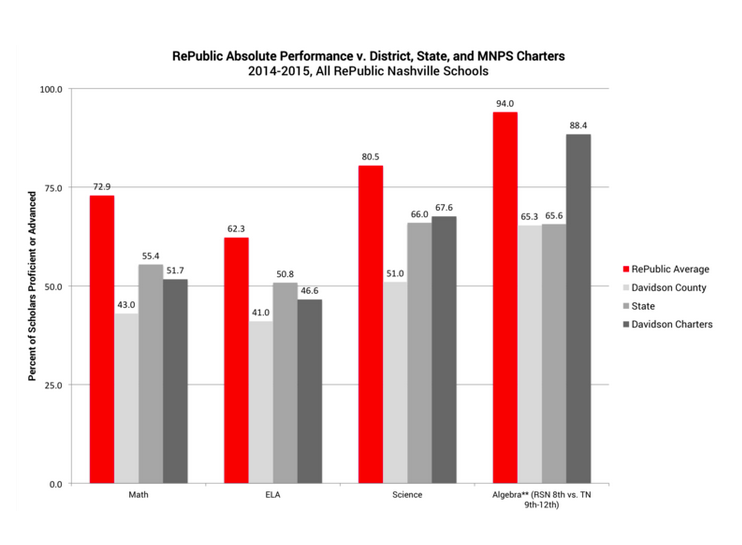Audrey Shores, Director of Communications and Technology for Professional Educators of Tennessee (PET) offers some thoughts on standardized testing in Tennessee.
The 2015-2016 school year ushers in some big changes to assessments that have been developed as the state has reacted to changing standards and legislation. Professional Educators of Tennessee Board President Cathy Kolb and Director of Technology & Communications Audrey Shores participated in the Assessment Practices Task Force that convened in April and continued meeting each month throughout the summer. A final report from the TN Department of Education on the findings and recommendations of the task force was released today.
The task force was established by the Department of Education to gather and analyze information regarding opinions about the assessment landscape in Tennessee form a variety of stakeholders including classroom teachers, district leaders, legislators and parents. The goal was to establish a set of principles and recommendations to guide decision-making around assessments, particularly in regard to the new TNReady assessments that will be implemented this year for ELA and Math.
While a university degree is not appropriate for everyone, studies show wide income gaps for those who do not go on to some type of post-secondary training. This is why standards are developed with “college and career readiness” in mind, and TNReady is designed to assess student’s proficiency in relation to the standards. One feature of the new tests is the more varied and interactive nature of the questions. Designed to be administered online, TNReady will utilize a variety of question types in addition to multiple choice. Some math questions will allow the use of a calculator instead of banning them outright, and ELA questions will involve activities such as highlighting passages. Sample questions are available online through MICA, a platform designed to be available to students and the public accessible through any browser. This also gives students who would like more practice with the system the ability to access it outside of the classroom. The MIST system will be
available to teachers for creating practice tests for students in the classroom. There is a waiver option for districts who are not ready for online test-taking, but overall the online system will reduce costs, and after the first year should reduce the time it takes the department to provide results.
A series of surveys this past year,including a statewide survey we conducted last spring (https://proedtn.site-ym.com/news/249809/) , uncovered a pattern of concerns regarding the culture of testing. Disruptions to regular instruction that affect the entire school and the amount of testing are two of the key concerns expressed, and that the Department says they are working hard to address.
Scheduling and Class Disruption
One of the biggest complaints that surfaced from teachers and district leaders was how disruptive assessments are, leading to a loss of valuable instruction. Past assessments were not designed with the variety of schedules utilized by different districts, which often led to a virtual shutdown of the entire school during testing. First, the new TNReady assessments are designed to fit within a regular 45-60 minute class period. Rules regarding the surrounding environment have also been relaxed, so teachers will no longer have to paper their entire rooms to cover walls or move the class to another location. Testing windows have also been developed to provide more flexibility on both the school and district level. Districts can choose their own windows within those provided by the state, and not all school within a district have to test on the same day. The Scheduling and Logistics Task Force began meeting over the summer to develop exemplary schedules based on a variety of scheduling models. It will continue to meet throughout the next year to provide feedback and guidance.
Too Much Testing!
The message has been clear – kids are getting too many tests, and not enough learning. Parents are upset by the stress they see their children coping with as they are pressured to perform well on tests throughout the year. Teachers are frustrated that they lose opportunities to teach more freely because they are constantly preparing the students to perform well on tests. Superintendents are stressed by trying to meet accountability requirements while responding to the concerns of educators and the community.
The amount of tests must be addressed at the summative, interim and formative levels. The state-required assessments are summative tests, of which there are only a few. Interim assessments are often required at the district level to address potential gaps that will affect student performance on the summative tests, and formative assessments include a wide array of test typically administered at the classroom level. Many feel that the high-stakes nature of testing at the state level drives a large quantity of tests at other levels, and leads to a disproportionately large amount of instructional time being devoted to test prep. While studies have found that most people believe that assessments and accountability are importance pieces of the education puzzle, they also feel that too much importance is placed on these aspects to the detriment of overall student learning.
Better Feedback
Relevance was a recurring topic that came up during the task force. Assessments need to provide feedback that is useful to students, teachers and parents. The Department of Education will be designing new reports this year to be both more aesthetically pleasing and easier to read in order to provide relevant information more clearly to parents and students. Clear, specific recommendations based on areas of weakness to help students improve is one of the primary goals of the new reports in order to provide more actionable information.
Being the first year of implementation for TNReady means that results will likely be delayed relative to previous years. One of the proposed benefits of the online system is that results will be available sooner in subsequent years. Criticism from teachers remains, however, because there is little they can do with this information once the child has left their classroom.
Testing and Evaluation
This spring, the 109th Tennessee General Assembly passed the Tennessee Teaching Evaluation Enhancement Act (http://wapp.capitol.tn.gov/apps/BillInfo/Default.aspx?BillNumber=HB0108) to lessen the effect that implementation of a new assessment will have on accountability measures for educators. The key portion of this legislation is the adjustment of the weighting of student growth data in teacher evaluations. This applies to the new TNReady ELA and Math assessments as well as the social studies and science TCAP tests. New assessments will only represent 10% of the evaluation for the 2015-2016 school year, 20% in the following year, and returning to 35% for the 2017-2018 school year. Only the most recent year’s data will be used if it results in a higher rating for the teacher. The act also decreases the weighting of growth data for teachers in non-tested subjects from 25% to 10% in for the 20-15-2016 school year, rising to a maximum 15% thereafter. For graphs showing growth score weighting for test v. non-tested subjects and more view the Tennessee Teaching Evaluation Enhancement Act page on the TEAMTN website.
Developing a plan for the new assessments has involved having conversations with and gathering feedback from a variety of stakeholders across the state. Legislators have taken steps to ease the transition and a variety of resources (see Resources, right) have been developed to assist everyone involved in understanding the changes that are being implemented this year. The process of gathering feedback and developing various components will continue throughout the year as the new tests are put to the test themselves.
For more on education politics and policy in Tennessee, follow @TNEdReport



